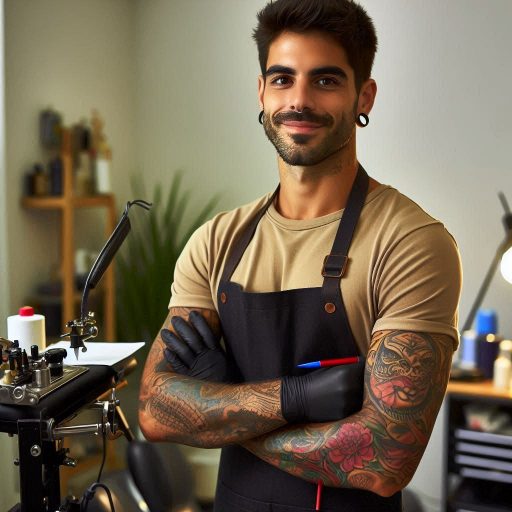Introduction
Event design is crucial for creating unforgettable experiences.
The demand for creative event designers is on the rise.
This blog post aims to provide valuable tips for aspiring event designers.
Start by brainstorming unique ideas that align with the event‘s purpose.
Develop a cohesive concept that ties all elements together.
Small details can make a big impact.
Pay close attention to every aspect of the event design, from decorations to lighting.
Follow industry trends and stay current with the latest event design innovations.
Incorporating trendy elements can make your work stand out.
Networking is key in the event design industry.
Connect with vendors, suppliers, and other professionals to create successful collaborations.
Event design requires careful planning and organization.
Develop strong time management skills to ensure everything runs smoothly.
Don‘t be afraid to step out of your comfort zone and try new design styles.
Experimentation can lead to innovative and unique ideas.
Integrate technology into your event design to enhance the attendee experience.
Use tools like event apps and interactive displays.
Feedback is valuable for growth.
Welcome constructive criticism and learn from mistakes to continuously improve your event design skills.
In fact, aspiring event designers can elevate their craft by following these creative tips.
Transform Your Career Today
Unlock a personalized career strategy that drives real results. Get tailored advice and a roadmap designed just for you.
Start NowWith dedication and creativity, you can succeed in the dynamic world of event design.
Develop a unique design style
Exploration and Development‘
As an aspiring event designer, it is crucial to spend time exploring different design styles and techniques.
This exploration process will help you discover what resonates with you personally and what sets your work apart from others in the industry.
Don’t be afraid to try new things and push the boundaries of traditional design concepts.
Standing Out in a Competitive Industry‘
In a crowded market filled with talented event designers, it is essential to develop a unique design style that sets you apart from the competition.
Clients are always looking for fresh and innovative ideas, so having a distinct design aesthetic will help you stand out and attract clients to your services.
Drawing Inspiration and Incorporating Personal Touches‘
One way to develop a unique design style is to draw inspiration from various sources such as nature, art, fashion, architecture, and travel.
By exposing yourself to different stimuli, you can infuse your designs with fresh and creative ideas.
Additionally, incorporating personal touches, such as your favorite colors, patterns, or textures, can add a level of authenticity and uniqueness to your work.
Read: Top Tattoo Artists in the USA: Masterpieces & Styles
Stay updated on industry trends
The importance of staying informed about current trends in event design
As an aspiring event designer, staying updated on industry trends is crucial to your success in the competitive world of event planning and design.
By keeping a pulse on what’s popular and innovative in the industry, you can ensure that your work remains fresh and relevant.
Recommend following industry blogs, attending events, and networking with professionals to stay ahead of the curve
One of the best ways to stay informed about current trends in event design is to regularly check out industry blogs and websites.
These platforms often showcase the latest designs, technologies, and concepts that are making waves in the industry.
By following these blogs, you can stay ahead of the curve and gain inspiration for your own projects.
Tips on adapting trends to fit personal style and creative vision‘
Another great way to stay updated is by attending events such as conferences, trade shows, and networking mixers.
These events not only provide valuable networking opportunities but also allow you to see firsthand the latest trends and innovations in event design.
By immersing yourself in the industry, you can gain a deeper understanding of what is resonating with event planners and attendees alike.
Networking with other professionals in the field is also key to staying informed about industry trends.
Building relationships with fellow event designers, vendors, and clients can provide you with valuable insights into what is popular and in-demand.
Transform Your Career Today
Unlock a personalized career strategy that drives real results. Get tailored advice and a roadmap designed just for you.
Start NowBy collaborating with others in the industry, you can share ideas, knowledge, and resources that can help you stay ahead of the game.
When it comes to adapting trends to fit your personal style and creative vision, it’s important to approach them with an open mind.
While it’s great to stay informed about what’s popular, it’s equally important to put your own unique spin on trends to make them your own.
Whether it’s incorporating a trendy color palette, using innovative design elements, or experimenting with new technologies, don’t be afraid to push boundaries and take creative risks.
Ultimately, staying updated on industry trends is a continuous process that requires dedication and passion for the craft.
By following industry blogs, attending events, and networking with professionals, you can ensure that your event designs are cutting-edge, innovative, and memorable.
So, embrace the world of event design trends and let your creativity shine!‘
Read: Salary Insights for Event Designers in America

Practice time management and organization
One of the most critical skills for aspiring event designers is mastering time management and organization.
In the fast-paced world of event planning, staying organized and managing time efficiently can make or break the success of an event.
Here are some tips to help you stay on track and avoid feeling overwhelmed.
Significance of Effective Time Management and Organization‘
Time management and organization are essential in event design because they ensure that everything runs smoothly and according to plan.
Without proper time management, tasks can pile up, deadlines can be missed, and chaos can ensue.
By staying organized and managing your time effectively, you can create a seamless and successful event.
Suggestions for Creating Timelines, Checklists, and Schedules‘
To stay on track and ensure that your event goes off without a hitch, it’s crucial to create timelines, checklists, and schedules.
Start by outlining all the tasks that need to be completed leading up to the event, including deadlines and important milestones.
Break down these tasks into manageable steps and assign realistic timelines to each one.
This will help you stay organized and ensure that nothing falls through the cracks.
Importance of Prioritizing Tasks and Setting Realistic Goals‘
One common pitfall for event designers is taking on too much and trying to do everything at once.
To avoid feeling overwhelmed, it’s important to prioritize tasks and set realistic goals.
Transform Your Career Today
Unlock a personalized career strategy that drives real results. Get tailored advice and a roadmap designed just for you.
Start NowIdentify the most critical tasks that need to be completed first and focus on those.
By setting realistic goals and breaking down tasks into smaller, manageable steps, you can prevent burnout and ensure that your event is a success.
In a nutshell, practicing good time management and organization is crucial for aspiring event designers.
By stressing the importance of effective time management, offering suggestions for creating timelines and checklists, and discussing the significance of prioritizing tasks, you can set yourself up for success in the exciting world of event design.
Read: How to Find Clients for Your Calligraphy Business
Cultivate strong communication skills
The importance of effective communication in collaborating with clients, vendors, and team members
Effective communication is essential for aspiring event designers.
It fosters collaboration with clients, vendors, and team members.
Clear communication helps avoid misunderstandings and ensures everyone is aligned on goals.
When you express ideas clearly, it builds trust and enhances teamwork.
Tips for clear and concise communication, active listening, and building strong relationships
To improve your communication, start by being clear and concise.
Avoid jargon and use simple language.
Organize your thoughts before speaking or writing.
This clarity makes it easier for others to understand your vision.
Active listening is another critical skill.
Focus fully on the speaker without interrupting.
Ask clarifying questions to demonstrate your engagement.
This practice not only helps you grasp ideas but also shows respect for others’ opinions.
Building strong relationships is vital in event design.
Take the time to connect with clients and vendors.
Establish rapport by being approachable and friendly.
Transform Your Career Today
Unlock a personalized career strategy that drives real results. Get tailored advice and a roadmap designed just for you.
Start NowA positive relationship fosters open dialogue, making collaboration smoother and more enjoyable.
The role of communication in understanding and meeting client expectations
Communication also plays a key role in understanding client expectations.
Schedule regular check-ins to discuss their vision and goals.
Take detailed notes during conversations to capture important information.
This practice ensures you are on the same page and helps you deliver exactly what they want.
In addition, be open to feedback.
Clients appreciate when you value their input and make adjustments based on their suggestions.
This responsiveness strengthens trust and enhances your reputation.
Basically, strong communication skills elevate your event design process.
They help you create memorable experiences while satisfying clients.
Cultivating these skills will set you apart as a successful event designer, paving the way for future opportunities.
Read: Online Courses to Improve Your Calligraphy Skills
Embrace flexibility and problem-solving skills
Aspiring event designers to remain flexible and adaptable in the face of challenges
Aspiring event designers must remain flexible and adaptable when challenges arise. Events rarely go exactly as planned.
Weather changes, technical issues, and last-minute cancellations can occur.
Embracing flexibility allows designers to adjust plans quickly.
Strategies for quick thinking, problem-solving, and troubleshooting during events
Encourage quick thinking and effective problem-solving during events.
Create a list of common issues and brainstorm solutions ahead of time.
For example, if a venue becomes unavailable, have alternative locations in mind.
Familiarize yourself with backup vendors to ensure smooth transitions.
Troubleshooting skills are essential for handling unexpected situations.
Transform Your Career Today
Unlock a personalized career strategy that drives real results. Get tailored advice and a roadmap designed just for you.
Start NowTrain yourself to assess problems rapidly and identify the best solutions.
Keep a toolkit handy with essential supplies like duct tape, batteries, and basic tools.
These items can help resolve many minor issues on-site.
The value of remaining calm under pressure and finding creative solutions to unexpected problems
Remaining calm under pressure is crucial for event designers.
Stressful situations can lead to poor decision-making.
Practice mindfulness techniques, such as deep breathing, to maintain composure.
A clear mind enables you to think creatively and effectively.
Finding creative solutions to unexpected problems can set you apart.
Encourage out-of-the-box thinking when faced with challenges.
For instance, if a speaker is late, engage attendees with an interactive activity.
This approach not only fills the time but also keeps guests entertained.
Developing flexibility and problem-solving skills enhances your value as an event designer.
Embrace the unpredictable nature of events and turn challenges into opportunities.
By staying adaptable and resourceful, you can create memorable experiences despite setbacks.
All in all, aspiring event designers should prioritize flexibility and problem-solving skills.
These qualities will serve you well throughout your career.
With practice, you can become a master at handling any situation that arises.
Invest in continuing education and training
Aspiring event designers should never stop learning and growing in their craft.
Investing in continuing education and training is essential to staying competitive in the industry and expanding your skill set.
Here are some tips on how to make the most of educational opportunities:
Transform Your Career Today
Unlock a personalized career strategy that drives real results. Get tailored advice and a roadmap designed just for you.
Start NowPromote the idea of lifelong learning and professional development‘
Encourage aspiring event designers to see education as a continuous journey rather than a destination.
Emphasize the importance of staying current with industry trends, technology advancements, and creative techniques.
By fostering a culture of learning, designers can stay ahead of the curve and continually improve their craft.
Recommend attending workshops, courses, and conferences‘
Attending workshops, courses, and conferences is a great way to gain new insights, learn from industry experts, and network with other professionals.
Encourage aspiring event designers to seek out educational opportunities that align with their interests and goals.
Whether it’s a design masterclass, a course on event planning, or a conference on the latest trends in the industry, these experiences can provide valuable knowledge and inspiration.
The benefits of certifications and advanced training programs‘
Certifications and advanced training programs can help aspiring event designers stand out in a competitive market.
Whether it’s obtaining a certification in event design, learning a new software program, or completing a specialized training course, these credentials can demonstrate expertise and commitment to professional growth.
Discuss the various certification options available in the industry and help designers choose the right path for their career development.
Overall, investing in continuing education and training is a key component of success in event design.
By staying committed to learning, aspiring designers can hone their skills, expand their knowledge, and position themselves as industry leaders.
Encourage continuous growth and development to achieve long-term success in the field.
Delve into the Subject: Day in the Life of a Professional Art Director
Conclusion‘
As an aspiring event designer, remember to stay inspired by exploring different styles and trends in the industry.
Keep your creativity flowing by attending workshops and networking events to connect with other professionals.
Pay attention to the details, as they can make or break an event design.
Collaborate with vendors and clients to bring your vision to life, and always be open to feedback and suggestions.
Trust your instincts and have confidence in your unique design aesthetic.
As you continue to grow and evolve in your career, passion and dedication will be your key drivers towards success in the competitive field of event design.‘
Readers, take these tips to heart, apply them to your own journey, and keep pushing forward in your pursuit of event design excellence.
Transform Your Career Today
Unlock a personalized career strategy that drives real results. Get tailored advice and a roadmap designed just for you.
Start NowShare your experiences and insights in the comments section below so we can continue the conversation and support one another in our creative endeavors.
Remember, the world of event design is vast and constantly evolving – don’t be afraid to carve out your own path and make your mark!




